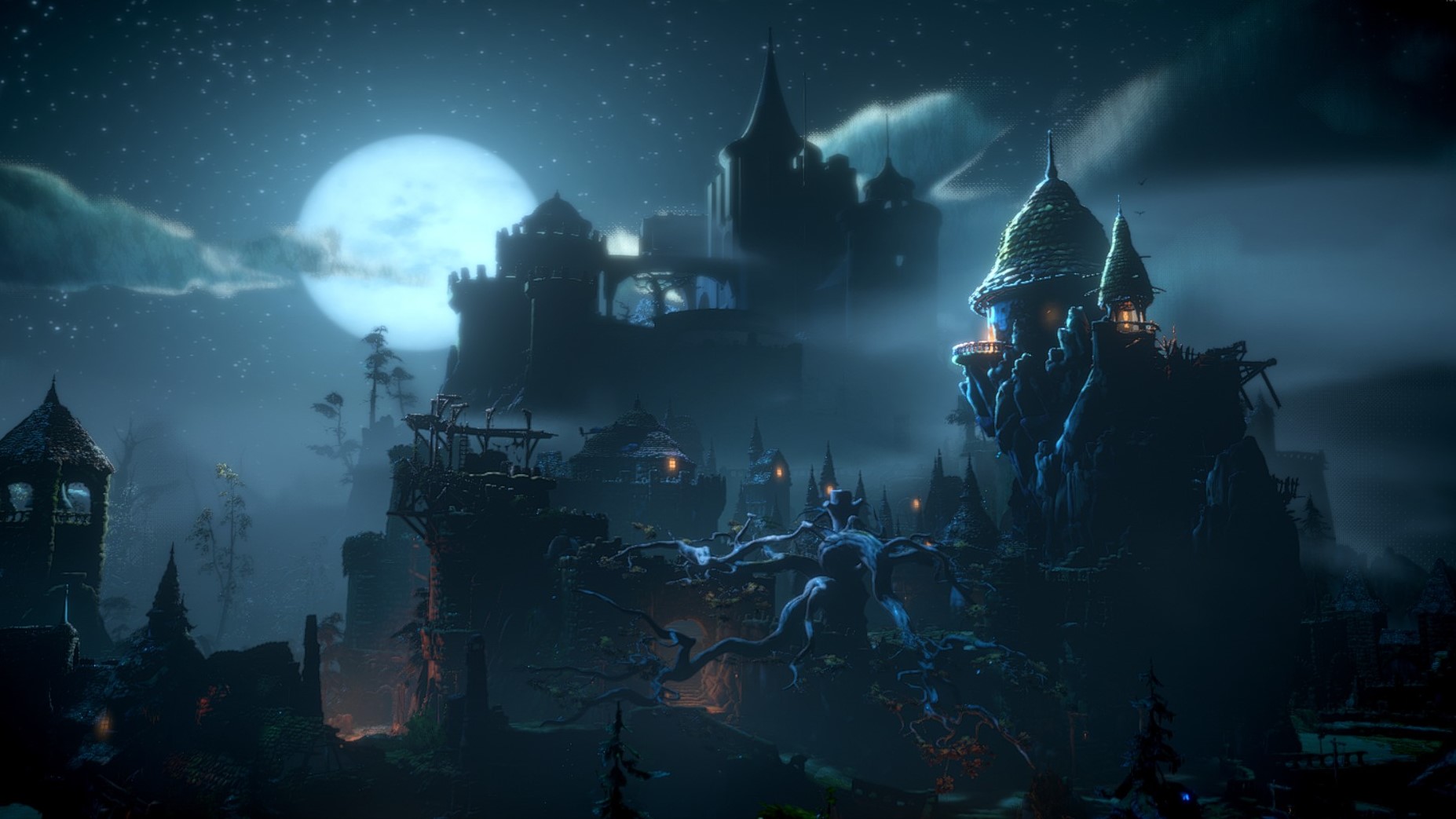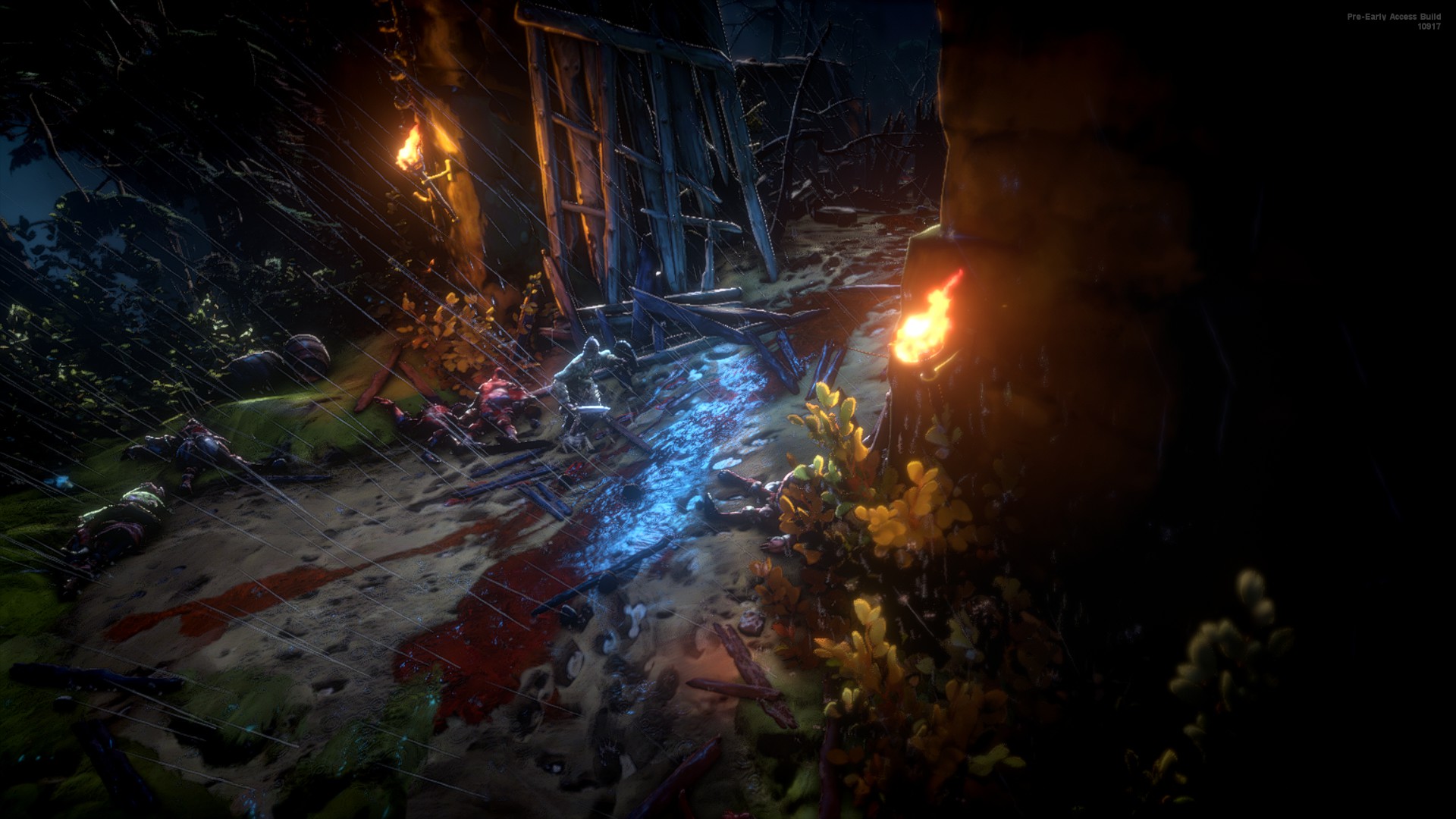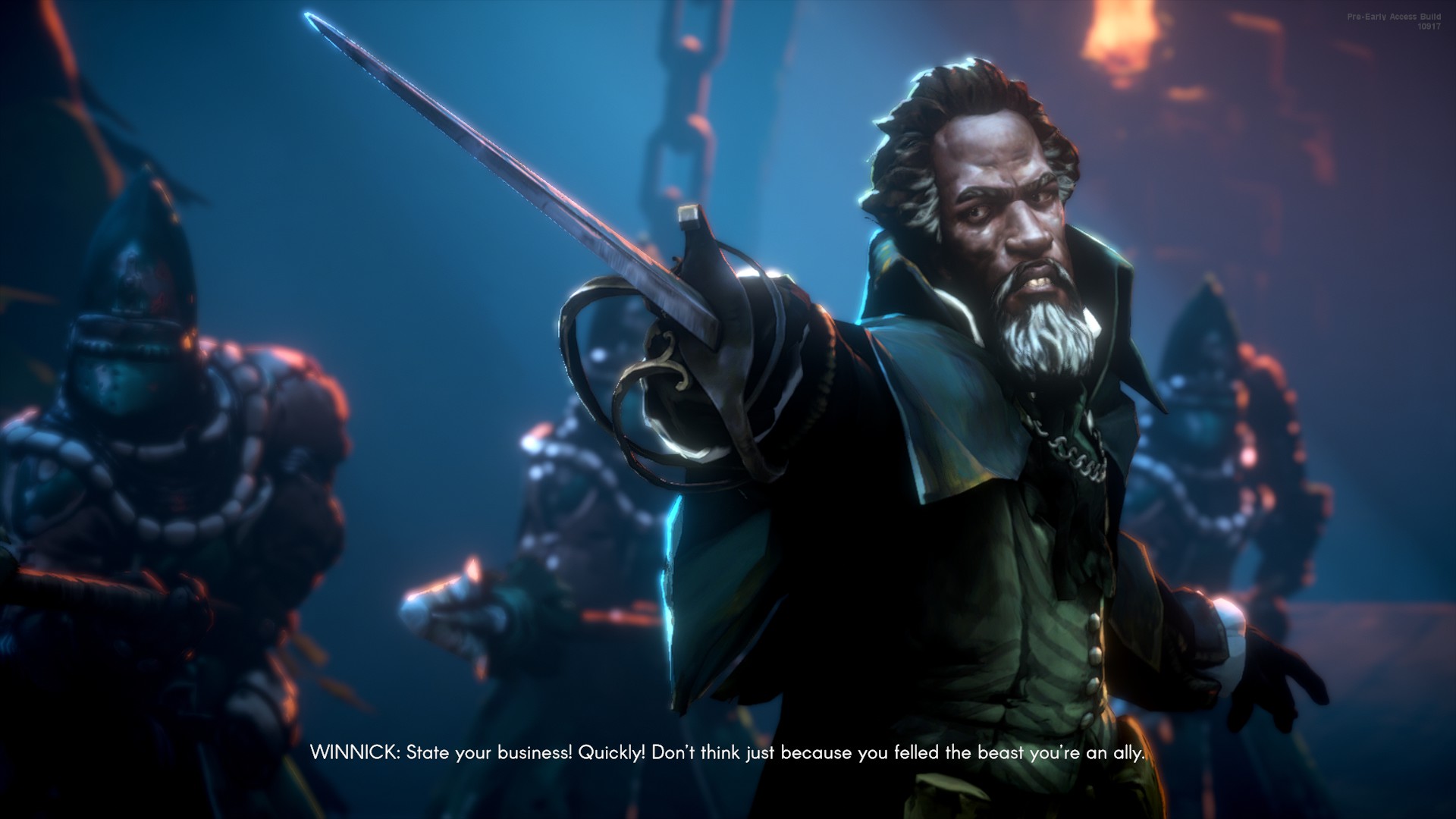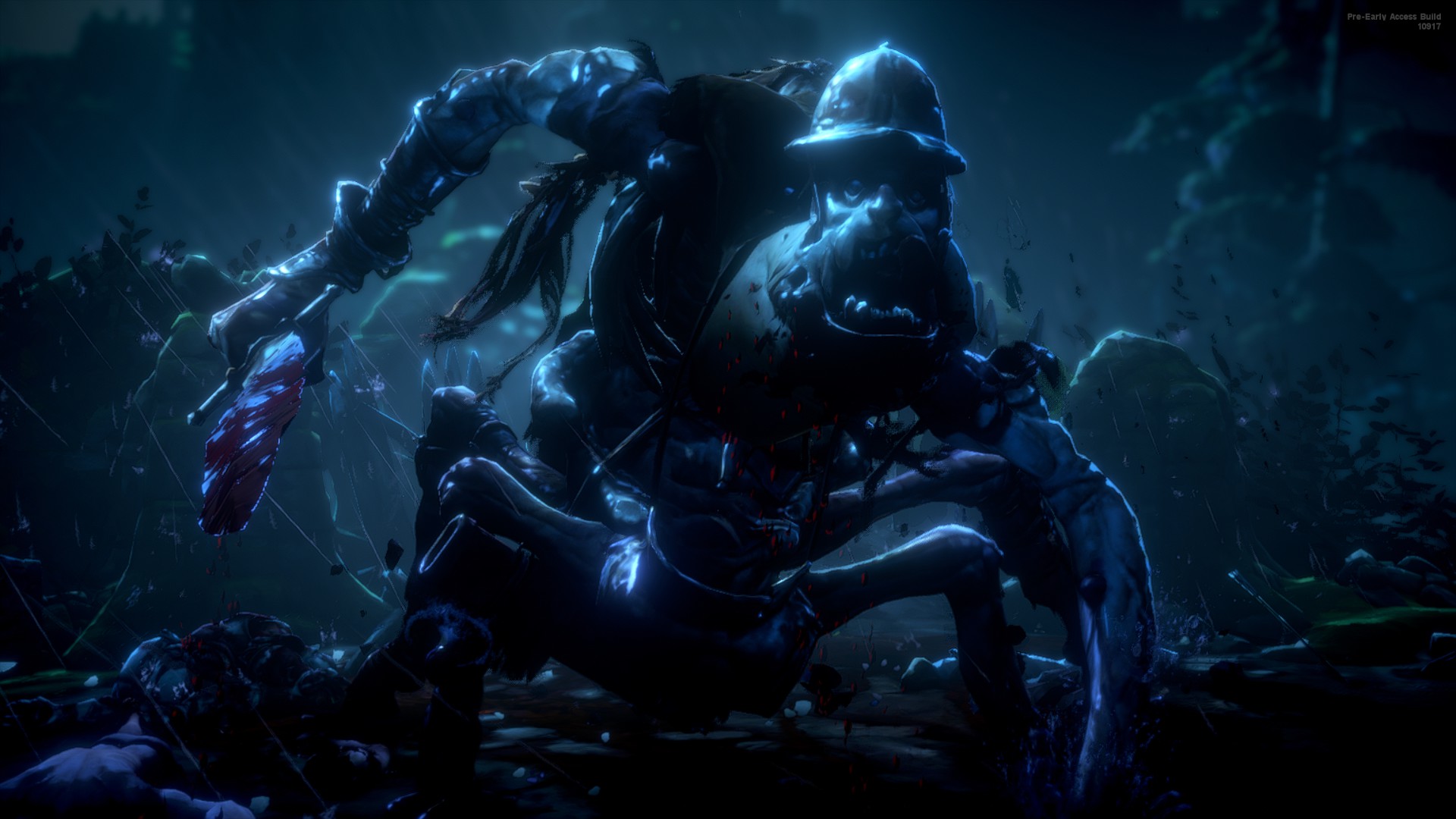The next adventure from the developer of Ori and the Blind Forest is a gripping soulslike action-RPG with a survival game twist
After 90 minutes with No Rest for the Wicked, I'm already in love with its enthralling visuals and deeply satisfying combat.

From its opening moments, No Rest for the Wicked is dripping with atmosphere. Literally, a lot of the time—during my 90 minutes with the game, its grim setting is perpetually damp, a clouded island where bandits and worse lurk among sodden ruins.
Its inhabitants—including my created character, a mystic warrior known as a "Cerim"—have a wonderfully gangly, grotesque look, like classical portraits whose paint is running in all that rain. And that's just the normal humans—when I run into the enormous mutant that serves as this build's boss fight, I get to see what ugly really looks like. But I'm getting ahead of myself.
No Rest for the Wicked is a soulslike action-RPG—expect the deadly, methodical combat and careful exploration of Dark Souls, with the top-down perspective and loot customisation of something more like Diablo 4. But I didn't want to lead with that, because to just waffle about genres and inspirations would be the most boring way to talk about a game that immediately yanked me into its world and refused to let go.
You'll know developer Moon Studios from its breakout debut Ori and the Blind Forest, and though that goes some way to explaining its arresting visuals and effortless sense of place, the island of Isola Sacra feels a million miles away from that game's enchanted wilderness. With talk of kings, heirs, dogmatic religion, and unholy plague, it's a bigger, grander story—but also a more human one, concerned with the plight of common people caught up in horror and cruelty beyond their control.
As a Cerim seemingly shipwrecked on Sacra's shores, dressed in rags and wielding the first big stick I come across, it falls to me to stand against the rising darkness. Or at least against the local gang of brigands, to start with.

As you'd expect, given the Soulslike influence, battles against this unpleasant lot are all about caution and precision—dodge-rolling, blocking, and parrying at the right time, looking for opportunities to launch slow but powerful strikes in retaliation. But here again the game stands out on its own terms.
Fights occupy space in a really exciting way—perhaps thanks to those low-hanging arms everyone seems to have, attacks have long reach and wide swings. Rolls really cover ground, and most enemies either have special attacks that hurl them towards you, or devastating ranged attacks that force you to keep closing the distance. I have to not only stay aware of my surroundings, but use them in interesting ways—leaping over gaps, luring foes into chokepoints, at one point even swimming to safety before hurling a fireball from a nearby sand bank.
Keep up to date with the most important stories and the best deals, as picked by the PC Gamer team.
That's the other piece of the combat puzzle: runic attacks. As you strike with your weapon, you charge up your focus, and once you have enough you can spend it on special strikes. With a dagger, that might be a charging strike, whereas with the staff I wield for most of my hands-on, it's a selection of three fiery spells. The result is that each weapon has its own in-built rhythm—get basic strikes in until you're charged up, then look for a perfect moment to unleash hell, whether that's dashing back to an elevated position to rain down fire from, or interrupting a foe's stumbling charge with a sudden skewering strike.

It's clear there's a lot of depth still to come in these combat mechanics. Tantalisingly, many of my weapons have empty slots which more runic attacks could be dropped into—the thought of customising my own preferred set is very enticing. I'm similarly keen to experiment more with the game's unique twist on Dark Souls' weight system; instead of simply slowing you down, heavier gear actually changes how your character moves. Near-naked characters can make quick side-steps instead of rolling, while heavily armoured warriors can use their slow dodges to shoulder charge into enemies. I'm sure each will prove useful in different situations.
But one of the things that most surprises me in my time with the game is that the thing that saves my life more times than anything else isn't a weapon or a piece of armour, it's a mushroom soup. Rather than relying on auto-refilling healing flasks, here your best way of recovering health is by eating food. That means gathering up ingredients as you explore—mushrooms, herbs, rat meat, crabs—and boiling them up at campfires. It's a hint at another of No Rest for the Wicked's big inspirations, that becomes increasingly clear as I find more and more crafting resources and even tools for mining ore, digging up roots, and chopping down trees. It's… kind of a survival game.

Gathering and crafting does feel secondary to the core action and exploration, and though I don't get to dig too deep into the systems in my time with the game, the implication seems to be that most of these resources will go towards making, upgrading, and enchanting your loot rather than building settlements. But that hint of Valheim to it all, especially in the reliance on food prepared with your own hands, does make me feel more connected to and reliant on the world than I do in the endlessly hostile worlds of most Soulslikes and action-RPGs. My demo stops just as I reach a major settlement, but the promise is once there you'll be able to buy and customise a home, farm the land between excursions, and help rebuild, expanding on these systems further—hinted at by items I discover such as wood planks and clay.
My final skirmish before my time is up is a duel with that great, grasping monstrosity I mentioned, as it lurches around a rain-soaked field. Rolling through its wild swings and sprinting through the mud to slash at its fleshy bulk, I feel like I'm just getting started on a truly unique journey. These days, it takes a lot for a Souls-inspired game to stand out, and believe me that I'm more cynical than most when it comes to FromSoft's many imitators. But No Rest for the Wicked refuses to stand in anyone's shadow, combining a rich tapestry of expertly-wielded influences with a world that just begs to be explored. It may always be cloudy on Isola Sacra, but Moon Studios' future is looking brighter than ever.

Formerly the editor of PC Gamer magazine (and the dearly departed GamesMaster), Robin combines years of experience in games journalism with a lifelong love of PC gaming. First hypnotised by the light of the monitor as he muddled through Simon the Sorcerer on his uncle’s machine, he’s been a devotee ever since, devouring any RPG or strategy game to stumble into his path. Now he's channelling that devotion into filling this lovely website with features, news, reviews, and all of his hottest takes.

